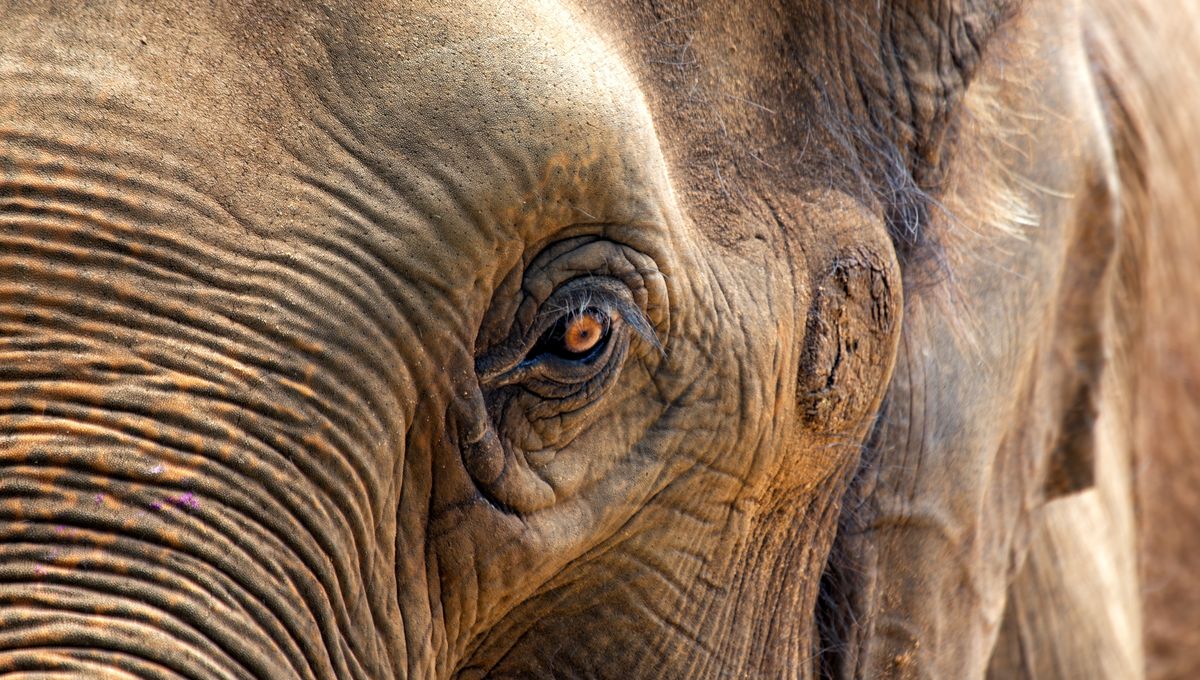
Asia’s oldest elephant has died at the astonishing age of over 100. While elephants are known for their long lifespans, it’s exceptionally rare, practically unknown, for an Asian elephant to surpass a century.
Vatsala died earlier this month at the Panna Tiger Reserve in the Central Indian state of Madhya Pradesh, leaving behind a host of heartbroken keepers and fellow elephants.
“With heavy hearts, we bid farewell to Vatsala, >100-old matriarch of Panna Tiger Reserve. Her gentle presence inspired awe in all who met her,” Anupam Sharma from the Indian Forest Service posted on social media.
“Thank you, Vatsala, for countless rescue operations & nurturing many Elephant calves. Your legacy lives on,” he added.
Vatsala was reportedly born in the lush green forests of Kerala, where she spent her early years hauling logs. She arrived in Madhya Pradesh in 1972, purportedly already over 50 years old, and later moved to the Panna Tiger Reserve in 1993.
Though she was a tuskless female and never mated, Vatsala became a cherished matriarch at Panna, earning deep affection from those who cared for her.
In 2020, she lost her sight due to cataracts, but that didn’t stop her from enjoying peaceful walks through the forest, guided gently by her devoted caretaker, Maniram.
“She was like a grandmother,” Maniram told the Times of India.
“She looked after all the calves. She’d guide them, protect them. But she always stayed away from male elephants. Always,” he added.
That instinct to avoid males wasn’t without consequence. In both 2003 and 2008, Vatsala was violently attacked by a male elephant named Ram Bahadur, who tried to mate with her. The first attack was especially brutal, leaving her with torn intestines and nine months of treatment.
Sadly, with no official documentation of her birth – after all, elephants born in the early 20th century didn’t tend to get birth certificates – Vatsala was never eligible for a place in the Guinness World Records, despite her extraordinary age and life story.
The official title of the world’s oldest elephant – and the oldest land mammal on record – belongs to Lin Wang, an Asian elephant who died at Taipei Zoo on February 26, 2003, at the remarkable age of 86.
As a general rule, larger vertebrates tend to live longer than their smaller counterparts. Greenland sharks, Galápagos tortoises, bowhead whales, and even humans are all relatively large and notably long-lived. A few smaller species, such as olms and pet turtles, defy this trend with surprisingly long lifespans, but they are typically exceptions to the rule.
At first glance, this might seem counterintuitive. Larger animals have far more cells, which could, in theory, mean more opportunities for mutations and a higher risk of cancer. Yet somehow, they’ve evolved mechanisms to keep mutation rates in check and extend their lifespans. Scientists are still working to understand this biological puzzle, which could have implications for our own longevity.
Source Link: At Over 100 Years Of Age, The World's Oldest Elephant Passes Away In India